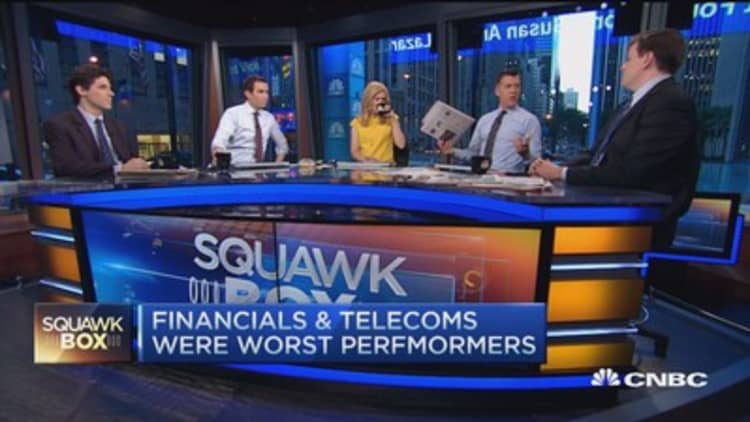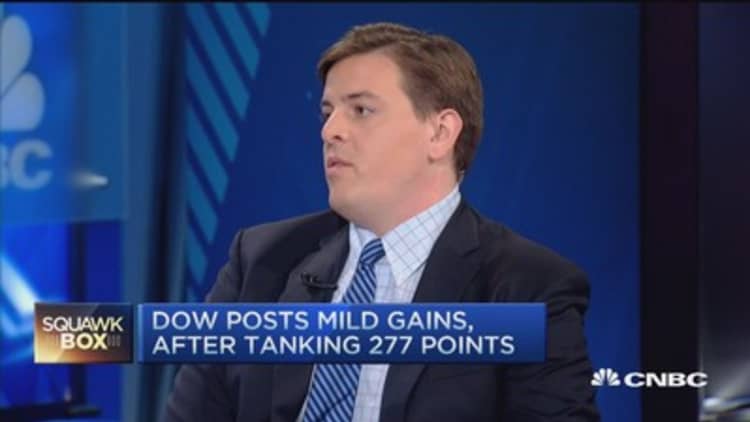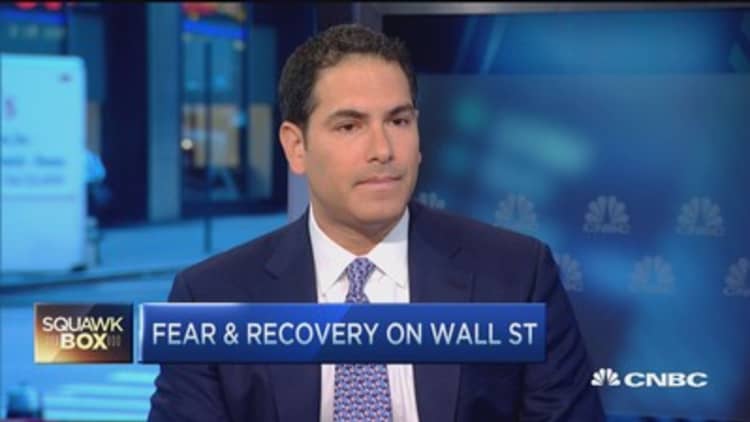


U.S. markets rebounded following the Chinese yuan devaluation shock because cooler heads prevailed, analysts told CNBC on Thursday.
A surprise shift Tuesday in how the People's Bank of China (PBOC) fixes the currency initially sparked fears that Chinese leaders were concerned about the country's growth prospects and dragged down global markets.
But on Wednesday, the Dow Jones industrial average erased most of the day's losses after tumbling 277 points, while six of 10 S&P 500 sectors closed in positive territory following big swings across the board between highs and lows.
Read More China weakens yuan for a third straight day on Thursday
The reversal shows that global markets are not panicked, and that they should not be, said George Pearkes, analyst at Bespoke Investment Group.
"As we've gotten more information from the PBOC, as we've seen the yuan fixings go through, as we've sort of come to understand the mechanism they're now using—a very market-oriented one—to set the fixing, I think that fear has really mitigated," he told CNBC's "Squawk Box."
China's motives for devaluing the yuan have been seen as two pronged. Market watchers speculated the PBOC sought to make Chinese-made goods cheaper for foreign buyers at a time its exports have weakened.
But China also wants to establish the yuan as a reserve currency. Bodies such as the International Monetary Fund have said the country must first allow market forces to more directly determine the yuan's value.
On Thursday, the PBOC vice governor Yi Gang said there was no basis for continued devaluation of the yuan and disputed the idea the bank changed its policy based on concern about economic weakness.
Read MorePBOC quashes currency depreciation expectations
The idea that China is slowing is not new, and the country's growth must moderate because it has too much debt and unfavorable demographics, Pearkes said. However, investors must keep in mind the magnitude of China's economy, he added.
"Chinese retail sales are growing 10 and a half percent year over year. In the United States, that figure is something like 1.6 percent. So I just think that this idea that the Chinese economy is collapsing … is ludicrous," he said.
The devaluation likely matters more for the U.S. inflation outlook than the country's growth prospects because American businesses import much more from China than they export to it, said Stephen Freedman, senior investment strategist at UBS Wealth Management Research.
"The exposure for earnings to the S&P to China is about 4 to 5 percent. The exposure of exports is about 9 percent, so the move itself was not a very big deal," he told "Squawk Box."


